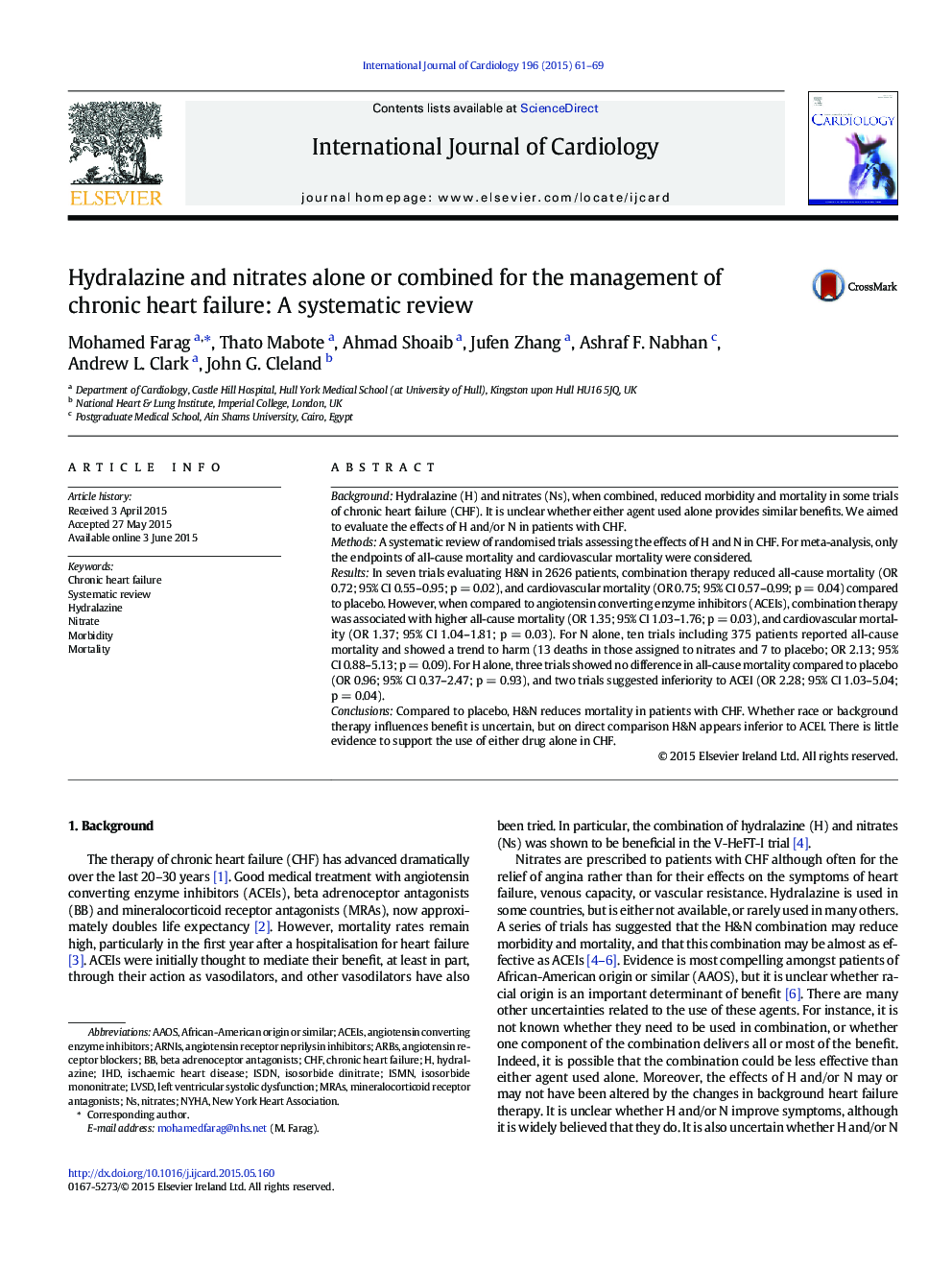| Article ID | Journal | Published Year | Pages | File Type |
|---|---|---|---|---|
| 5966037 | International Journal of Cardiology | 2015 | 9 Pages |
BackgroundHydralazine (H) and nitrates (Ns), when combined, reduced morbidity and mortality in some trials of chronic heart failure (CHF). It is unclear whether either agent used alone provides similar benefits. We aimed to evaluate the effects of H and/or N in patients with CHF.MethodsA systematic review of randomised trials assessing the effects of H and N in CHF. For meta-analysis, only the endpoints of all-cause mortality and cardiovascular mortality were considered.ResultsIn seven trials evaluating H&N in 2626 patients, combination therapy reduced all-cause mortality (OR 0.72; 95% CI 0.55-0.95; p = 0.02), and cardiovascular mortality (OR 0.75; 95% CI 0.57-0.99; p = 0.04) compared to placebo. However, when compared to angiotensin converting enzyme inhibitors (ACEIs), combination therapy was associated with higher all-cause mortality (OR 1.35; 95% CI 1.03-1.76; p = 0.03), and cardiovascular mortality (OR 1.37; 95% CI 1.04-1.81; p = 0.03). For N alone, ten trials including 375 patients reported all-cause mortality and showed a trend to harm (13 deaths in those assigned to nitrates and 7 to placebo; OR 2.13; 95% CI 0.88-5.13; p = 0.09). For H alone, three trials showed no difference in all-cause mortality compared to placebo (OR 0.96; 95% CI 0.37-2.47; p = 0.93), and two trials suggested inferiority to ACEI (OR 2.28; 95% CI 1.03-5.04; p = 0.04).ConclusionsCompared to placebo, H&N reduces mortality in patients with CHF. Whether race or background therapy influences benefit is uncertain, but on direct comparison H&N appears inferior to ACEI. There is little evidence to support the use of either drug alone in CHF.
